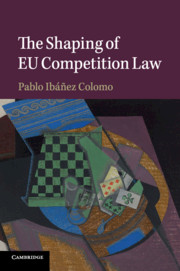Book contents
2 - An Analytical Framework for the EU Competition Law System
from Part I - Theory
Published online by Cambridge University Press: 23 June 2018
Summary
- Type
- Chapter
- Information
- The Shaping of EU Competition Law , pp. 23 - 82Publisher: Cambridge University PressPrint publication year: 2018
- 1
- Cited by



